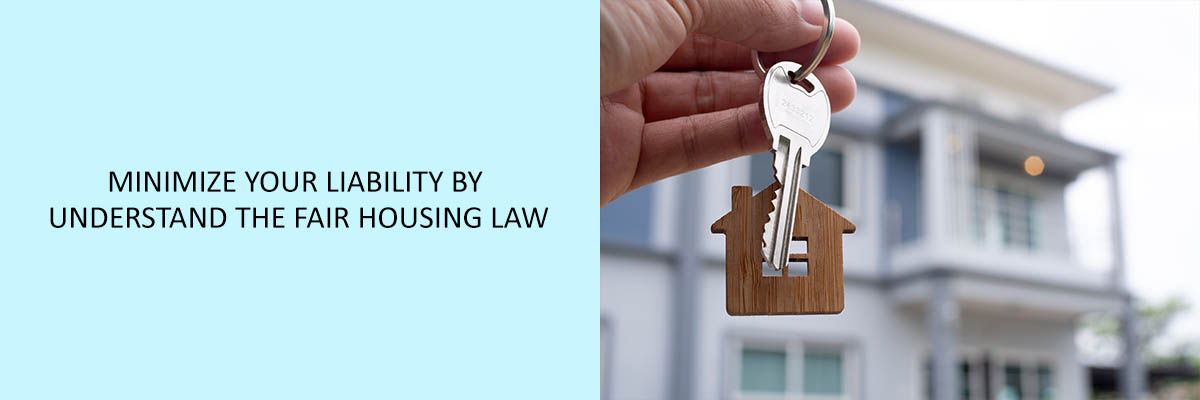The Fair Housing Act (FHA) is a federal law that prohibits discrimination in housing. The FHA applies to landlords, rental agents, property managers, home sellers, and homeowners. The law protects the rights of potential renters, sellers, buyers, owners, banks, mortgage companies, and any individual that has an interest in buying, renting, or selling a home. The FHA also requires that you have a non-discriminatory policy for all your tenants, and requires you to make reasonable accommodations for disabled tenants.
The FHA protects people from discrimination based on race, color, national origin, religion, sex, disability, or familial status. These are the seven protected classes. So keep your rental property in line with the Fair Housing Act (FHA), and do not let a lawsuit ruin your life.
Most Common Fair Housing Mistakes
It is the duty of landlords to learn and practice fair housing. Always remember that legal action is expensive and time consuming. Here are some common Fair Housing mistakes that landlords should avoid.
1. Failure to Keep Records
The Fair Housing Act requires that landlords maintain rental records for at least one year. Even though the law does not specify a format for the records, there are two options: paper or electronic. Because of the increasing prevalence of technology, many landlords opt to create a database of tenant information. Landlords have the option to include specific data fields, such as photo identification, social security number, and credit score (for rental history). Essentially, the database can be formatted to include any information that could be pertinent to the landlord or tenant.
- Inconsistency in the Application of Rules
Discrimination is a legal term that covers unfair treatment against a group or an individual on the basis of certain characteristics, such as race, religion, or gender. One of the most common forms of discrimination is when a landlord or manager treats their tenants differently and applies or enforces different rules for different tenants. In most cases, this is considered illegal. Landlords and managers may dislike certain tenants, but that’s usually not a good enough reason to treat them unfairly. Cases of discrimination may be hard to prove without solid evidence.
- Having an All-Adult Complex
In the United States, ageism is considered a form of discrimination in housing. An all-adult complex is a housing complex that prohibits children from living in the complex. The Fair Housing Act makes it illegal to discriminate against families with children. This covers all aspects of housing; renting or selling houses, apartments, condos, mobile home spaces, and even vacant lots. The only exceptions are housing for older persons, housing for persons with disabilities, and single-family homes sold or rented without the help of a real estate agent.
- Failure to Accommodate a Tenant with a Disability
Landlords and other property owners have a duty to make their premises accessible to tenants with disabilities. That means providing ramps, installing accessible parking spaces, and keeping common areas such as hallways, stairways, and entrances free of obstructions. If a tenant makes a reasonable request for an accommodation, you should generally honor it. Examples of reasonable accommodations include installing a ramp or handrails, moving the tenant’s parking space, or installing a ramp over an existing flight of stairs if doing so is reasonable and does not pose an undue burden on you.
Final Words
The owner, broker, realtor, manager, or company representative are liable for fair housing practices under the law. Attend the Compliance Prime webinar to know more about Fair Housing Act.


